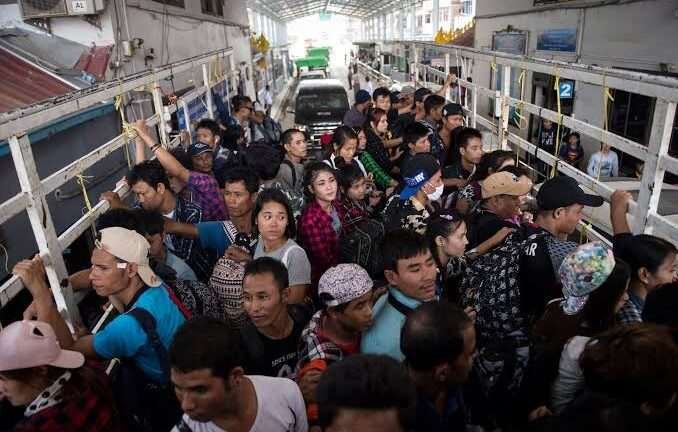Bangkok, Thailand (July 2021) – Thailand’s post-pandemic economic recovery is facing a critical threat due to a severe shortage of migrant workers, who are essential to the country’s key export sectors. The labor-intensive industries, including agriculture, construction, and services, are particularly vulnerable, with the shortage of workers potentially hampering economic stability and growth.
Migrant workers, primarily from Myanmar, Cambodia, and Laos, are vital to Thailand’s economy, filling roles that are often shunned by local workers due to their demanding and sometimes hazardous nature. The Thai government’s recent decision to extend employment contracts for over 200,000 migrant workers aims to address this shortage, providing temporary relief and ensuring that critical sectors continue to operate smoothly.
However, this extension is merely a stopgap measure, highlighting deeper structural issues within Thailand’s labor market. A growing preference among young Thai graduates for freelance work or positions that offer a better work-life balance, coupled with the country’s aging population, has led to a domestic workforce that is inadequate to meet the demands of the economy. This demographic shift underscores Thailand’s dependency on migrant labor for its economic survival.
Poj Aramwattananont, vice-chairman of the Thai Chamber of Commerce and president of the Labour and Skill Development Committee, emphasized the importance of this labor force in driving economic recovery. “The economy is recovering as the country opened up following the pandemic. The clear engine driving the economy is labor, and the development of human capital is important at all levels,” Poj stated.
From a strategic standpoint, Thailand must adopt a more comprehensive and long-term approach to labor management. This could involve incentivizing domestic workers to fill critical roles, expanding the recruitment of migrant workers from additional countries, and implementing policies that ensure a steady and reliable labor supply. Such measures are crucial to mitigate the risk of future labor shortages and to sustain economic growth.
The decision to extend migrant worker contracts also reflects the urgent need to stabilize the labor market amidst political uncertainties. Deputy Prime Minister Wissanu Krea-ngam noted that without the extension, migrant workers would have had to return home, potentially leaving a significant labor vacuum until a new government could take office and address the issue.
In conclusion, Thailand’s reliance on migrant workers is not just a matter of economic convenience but a necessity for maintaining its position in the regional and global markets. The current measures provide a temporary solution, but a robust long-term strategy is essential to navigate this crisis and ensure sustained economic recovery and growth.

